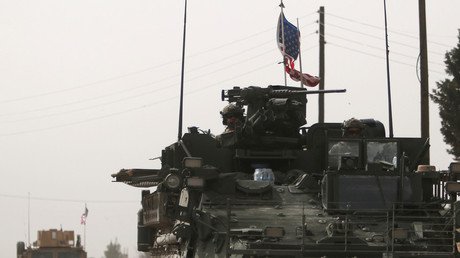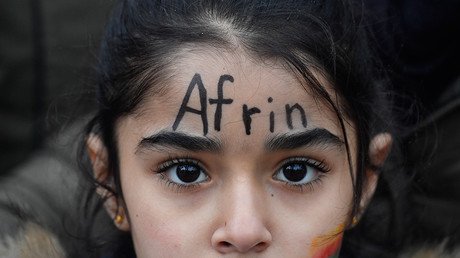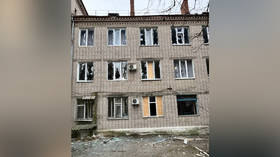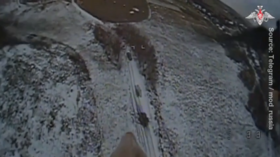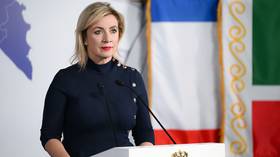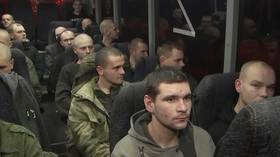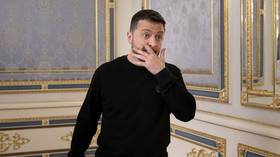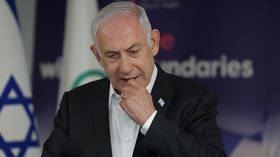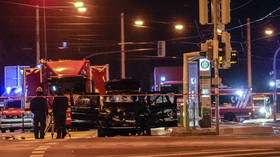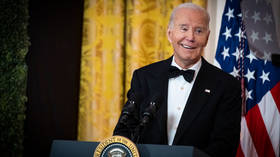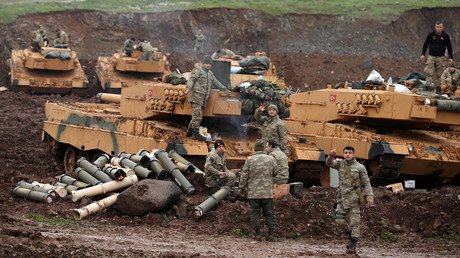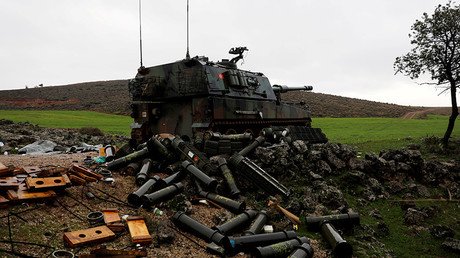Turkey v NATO: Will Ankara’s Syria incursion destroy ties with partners?
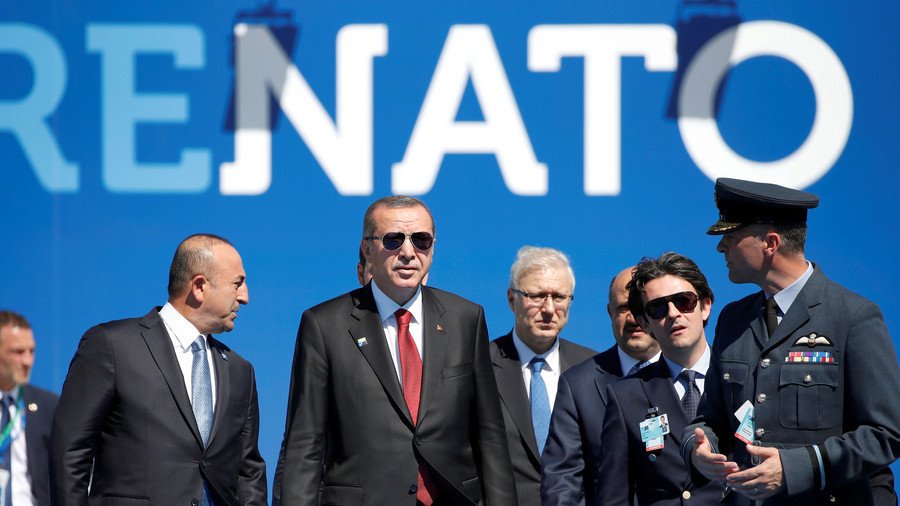
NATO member Turkey appears to be straining the patience of allies with its operation in Syria’s northwest – but just how far can the ties stretch before they snap?
Turkey’s “anti-terrorist” operation in the Kurdish area of Afrin, northwest Syria, looks set to expand, with Manbij and Idlib being voiced as the next targets. As Turkish troops, along with their Free Syrian Army (FSA) allies, march into village after village to clear them of “Kurdish terrorists,” Ankara’s NATO allies don’t seem particularly thrilled about the intervention.
The president and foreign minister of France have warned Turkey against the invasion and accused it of “adding war to war”– albeit in interviews, not official statements.
Germany went a step further than words, and froze all decisions on supplying weapons to Ankara, including upgrades to the German Leopard tanks already employed by Turkey.
But of all the NATO allies, it’s the US that has the most tangible stake in the convoluted situation – and it’s the US that has been sending the most mixed signals.
Kurdish fighters in Syria have enjoyed American support up until very recently, as they did some of the heavy lifting in the fight against Islamic State (IS, formerly ISIS) terrorists. However, late in 2017 US President Donald Trump promised to end arms supplied to the Kurds. In January 2018, US-led coalition spokesman Ryan Dillon made it clear that Afrin, in particular, is not an area of interest.
At the same time, Turkey is deemed to be acting in self-defense: US Defense Secretary James Mattis called it “the only NATO ally with an active insurgency inside its border,” threatened by the PKK (Kurdistan Workers’ Party), an armed group considered terrorists by NATO.
Now that Manbij is in Ankara’s crosshairs, however, things are getting more complicated between the two Allies. Some 2,000 American soldiers are stationed in Manbij, providing support for the YPG (People’s Protection Units) – another Kurdish paramilitary group, which Turkey has also designated terrorist.
Turkish President Recep Tayyip Erdogan has been clear about his intentions: he stopped just short of direct threats, warning the Americans to leave Manbij before the Turkish forces hit it. He mocked the American presence as “opportunistic” and accused Washington of having “calculations against Turkey, Iran and maybe Russia” in Syria. The Turkish deputy prime minister even said straight up that Americans could be targeted if they are found wearing uniforms of Kurdish militias.
With advancing Turkish forces just a 100km march away, Washington’s responses sound surprisingly meek. Without responding to Ankara’s jabs and accusations, top US brass have only made it clear they won’t budge from Manbij and won’t abandon their support for “Kurdish elements of the SDF [Syrian Democratic Forces],” an umbrella Syrian armed opposition group. Defense Secretary Mattis has only just announced plans to meet with his Turkish counterpart next week to talk this over.
So why are fellow NATO members letting Turkey get away with a military campaign that not only endangers thousands of civilians, but is also one misstep away from armed confrontation between allies?
Could this cost Ankara good relations with the rest of NATO, or maybe even its membership?
First off, Turkey boasts the second-largest army in the entire alliance. Having justified its eastward expansion through the “threat” of an “assertive Russia,” in no small part in the now-Russian Crimea, the bloc cannot afford to lose such a formidable standing force in such a strategic location, with access to much of the Black Sea shore.
Second, Turkey’s location – sandwiched between the Black and the Mediterranean seas, and at the doorstep to the Middle East – means it’s entangled in numerous NATO projects.
“Ankara hosts a key NATO center to train civilians and officials from many countries in combating terrorism. Turkey has also supplied troops and equipment to Afghanistan,” says Alessandro Bruno, analyst at Lombardi Letter. “Turkey is actively present in NATO programs of assistance, cooperation and stability projection beyond Afghanistan, Asia, Iraq, Ukraine and the Balkans. NATO has increased its presence in the Black Sea and in the eastern Mediterranean. It’s safe to say, NATO needs Turkey more than Turkey needs NATO for the time being.”
Ironically, to end its dependence on Turkey, the alliance needs to reconcile with Russia: “Should the United States ever come to its senses and realize that Russia could be a crucial partner in dealing with the fluid threats in the Middle East and the Pacific Rim (North Korea/China), then Turkey will be the one to need NATO more,” Bruno believes.
And finally, when it comes to European NATO partners, Turkey has the perfect leverage in its “migrant deal” with the European Union. Turkey has agreed to act as a buffer between Syria and Europe, only releasing one asylum seeker into the EU for every one that gets sent back. This deal has placed Turkey in charge of a “refugee floodgate,” which Ankara has repeatedly threatened to open if its demands are not met. This has so far proven useless in getting Turkey a spot in the EU, but remains something European NATO members should be wary about.
“Turkey and NATO is a friendship – even if difficult – destined to last. Recent visits to France and Italy show that despite problems, Turkey will stay in NATO even if prospects for its entry into the European Union have almost completely faded,” Bruno says.
Ultimately, it seems European NATO leaders will remain content to hit Turkey with holier-than-thou demands and condemnations, scoring political points in the process – but with the US in charge and Turkey crucial to alliance dominance, Ankara will be allowed to get away with just about anything… at least for now.
